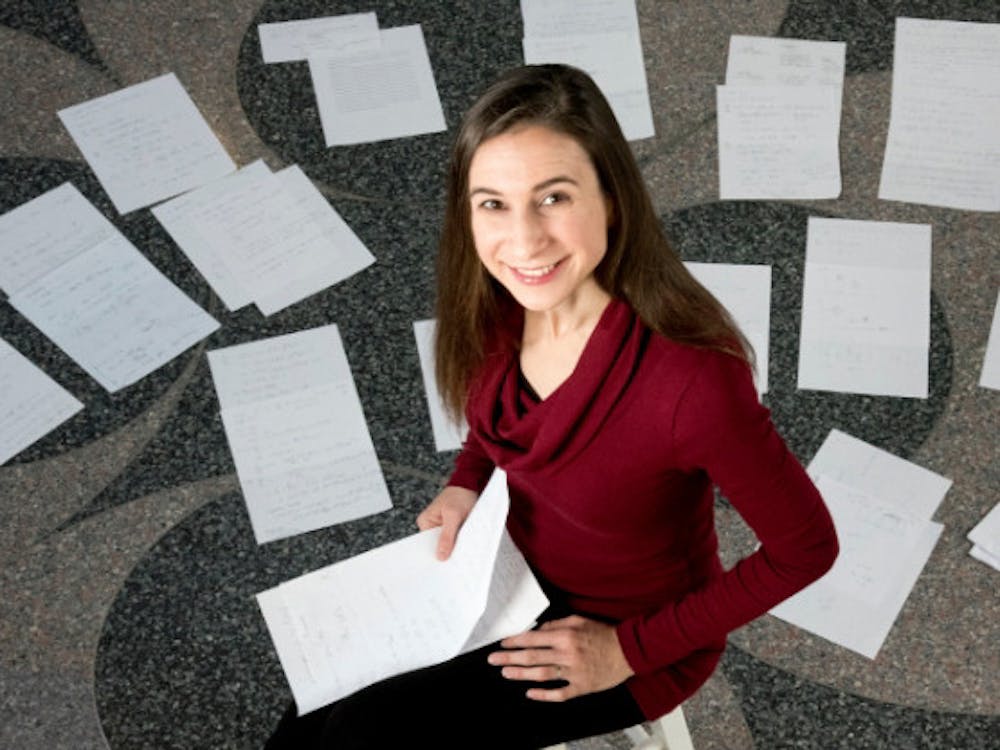Duke professor Cynthia Rudin has been recognized as the 2021 recipient of the AAAI Squirrel AI Award for Artificial Intelligence for the Benefit of Humanity.
The Squirrel AI Award was initiated in 2020 by the Association for the Advancement of Artificial Intelligence, which was founded in 1979. The inaugural award was given to Professor Regina Barzilay of the Massachusetts Institute of Technology last year; now, one winner is presented with the award—along with a prize of $1 million—at the AAAI conference each year.
“When this award came along, it was essentially designed for what I had already been doing over the course of my career, but I never expected to be rewarded for it in a million years,” wrote Rudin, professor of computer science, electrical and computer engineering, statistical science and biostatistics & bioinformatics, in an email to The Chronicle.
Rudin is known for her research and design of interpretable forms of artificial intelligence. She focuses heavily on accessibility and ease of use rather than increasingly complex algorithms. Her optimized algorithms can be small enough to fit on an index card or simple enough to be memorized.
Rudin’s approach to machine learning in the real world has made waves in the study of artificial intelligence and has already had massive implications for how AI technologies develop into the future. For example, her findings have been used extensively in high-stakes criminal justice decisions.
In 2019, Rudin worked closely with her former student, Tong Wang, and the Cambridge Police Department on one of her notable projects. Together, the team developed code to attempt to identify patterns of crimes to better identify repeat offenders. The code was then used by the New York Police Department to develop Patternizr, a software system which compares each new “seed” crime to older incidents to see if the events could be part of a series.
“I didn’t want to just work on methodology or theory,” Rudin wrote. “I wanted to see how it worked in practice. AI is starting to have a huge impact in our world.”
Rudin is not only thankful on a personal level to receive the prestigious award, but also for the recognition that the field of artificial intelligence has received as an effect of it.
“It means more than I can say. It means everything. I was—for so many years—working in a field that almost no one cared about,” Rudin wrote. “The competition was really tough. I’m really honored that they chose me.”
Coming from a budding industry like artificial intelligence, Rudin’s selection was certainly hard-fought. On top of her individual accomplishments, she credits Duke with playing a big role on her path to success.
“I think we are all luckier to be at Duke than we all know. Duke is an unusually open-minded place, and I’m very proud to be here,” Rudin wrote.
In terms of the million dollar prize, Rudin has yet to decide how to use it. What is certain, however, is that Rudin will continue to stamp her name on the future of artificial intelligence, especially now that the world is watching.
“I felt that I couldn’t do anything no matter how hard I tried because no one was listening. This award made me realize that things had really changed.”
Get The Chronicle straight to your inbox
Sign up for our weekly newsletter. Cancel at any time.
James Cruikshank is a Trinity first-year and a staff reporter for the news department.

